Flood survivors fighting hard to keep hope alive
Hakim Machhi has been camped out on a river bank for three days, waiting in vain for Pakistani aid.
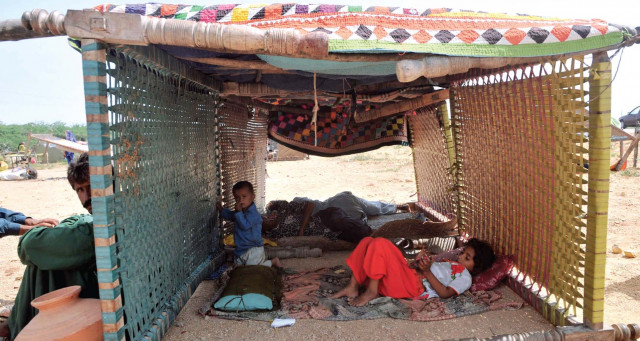
Around 50 families lived in the remote village of Alan Suhebjo, 30 kilometres north of Hyderabad in Sindh, but their homes have now disappeared in Pakistan’s worst humanitarian disaster.
About 10 kilometres from the nearest town of Saeedabad, the village is largely isolated from the state-sponsored and mainstream independent relief operations.
The villagers, however, have fallen back on their resourcefulness, as they decamped to a nearby embankment. The collection of mud huts has already been abandoned as occupants were frightened of rising waters.
“We’re finishing our food reserves and our children are getting sick with no medical help forthcoming,” said Machhi, shirtless and with his skin burnt by the sun.
“We are trying to get transport to go to a relief camp but no one’s here to help us,” the 35 -year-old added.
Mohammed Qasim, from Manjhand town but now living at a camp in a local school in Hyderabad says: “I lost my three-year-old son; so have many others, because proper healthcare facilities are not available. I wouldn’t have lost my son if he would have gotten adequate and prompt treatment”.
It took the family a couple of days to find a truck they could afford to drive them to safety in Hyderabad, then a full day’s journey. When they reached the camp, Qasim did not initially realise his son was so ill.
Mohammad Sohrab, 50, a grey-haired peasant cradling a newborn baby in his lap remarked,
“Our rulers come here to seek votes whenever they fight elections, but in this time of distress no one’s here to take care of us. We’re dying and the government is doing nothing to save our children,” Sohrab said.
Officials and relief workers acknowledge that those needing help in remote villages have not been rescued because of lack of communication and also because of the large-scale destruction.
Officials are considering moving people out of government buildings into tent cities to lessen health problems caused by overcrowding.
Published in The Express Tribune, August 28th, 2010.


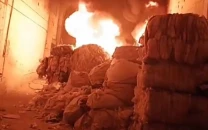
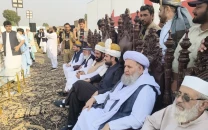
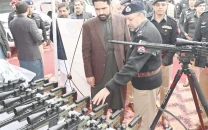
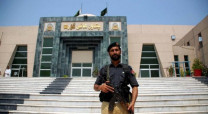
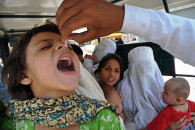












COMMENTS
Comments are moderated and generally will be posted if they are on-topic and not abusive.
For more information, please see our Comments FAQ